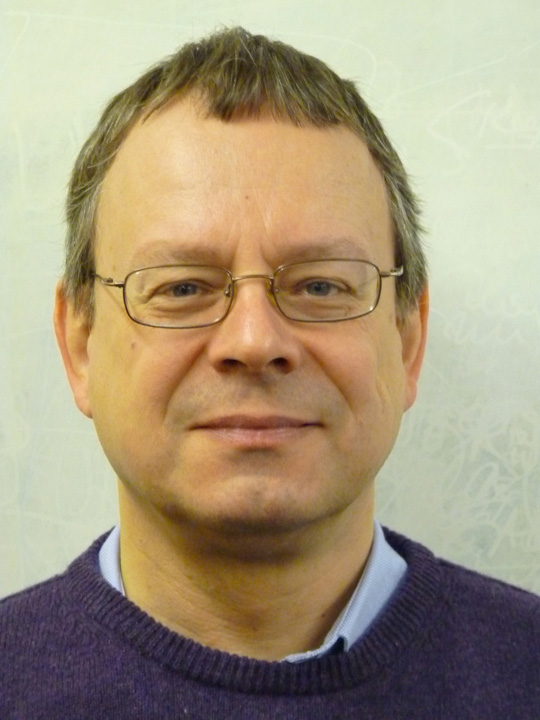Seminars
A Refinement Based Approach to Hybrid Systems: Basics and Event-B Design PDF (1) & PDF (2)
Richard Banach– Professor, School of Computer Science, University of Manchester
09/14/2012, 2pm, GHC 6501
Abstract
We outline some of the issues that arise in pursuing a refinement based approach to the hybrid and cyber-physical systems being developed today, supporting the view that a combination of refinement and retrenchment techniques gives the best coverage. We outline a semantic framework for hybrid systems. We go on to consider how to integrate the hybrid ideas into the Event-B framework, which was intially conceived for discrete transitions alone. Development in Event-B is predominantly controlled by the generic verification conditions that are instantiated for each individual development, and we show how these can be extended to cover the new hybrid features.
Biography
 Richard Banach received the degree of B.Sc. in Mathematical Physics in
1976 from Birmingham University (UK). This was followed in 1977 by a Diploma
in Advanced Studies in Science, and in 1979 by a Ph.D. in Theoretical
Physics, both from Manchester University (UK). The field of study for his
doctorate was quantum field theory in topologically non-trivial spacetimes.
There followed three further years as a researcher in theoretical physics,
studying quantum field theory.
In 1982 he joined International Computers Limited working on the development
of the ICL 3980 mainframe. There, his main areas of responsibility lay at
the hardware/software interface: from address translation microcode, through
the design and implementation of the global synchronisation primitives for
multinode systems, (the ICL 3900 series machines were probably the first
commercially available machines featuring a globally cache coherent,
physically distributed virtual memory model), and thence to multinode error
recovery strategy.
Richard Banach received the degree of B.Sc. in Mathematical Physics in
1976 from Birmingham University (UK). This was followed in 1977 by a Diploma
in Advanced Studies in Science, and in 1979 by a Ph.D. in Theoretical
Physics, both from Manchester University (UK). The field of study for his
doctorate was quantum field theory in topologically non-trivial spacetimes.
There followed three further years as a researcher in theoretical physics,
studying quantum field theory.
In 1982 he joined International Computers Limited working on the development
of the ICL 3980 mainframe. There, his main areas of responsibility lay at
the hardware/software interface: from address translation microcode, through
the design and implementation of the global synchronisation primitives for
multinode systems, (the ICL 3900 series machines were probably the first
commercially available machines featuring a globally cache coherent,
physically distributed virtual memory model), and thence to multinode error
recovery strategy.
http://www.cs.man.ac.uk/~banach/
 Supported by an Expeditions in Computing award from the
Supported by an Expeditions in Computing award from the